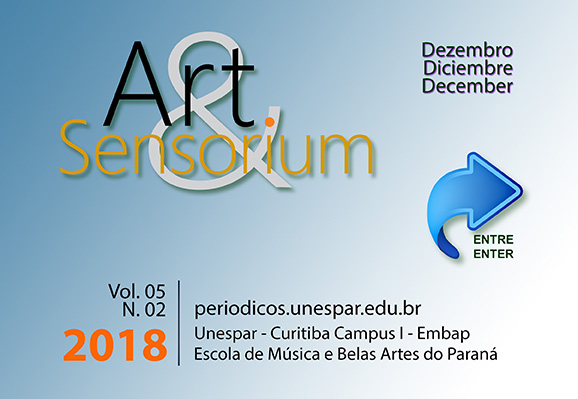Aesthetic Education and Sensitivity from the Thought of Friedrich Schiller
DOI:
https://doi.org/10.33871/23580437.2018.5.2.125-135Keywords:
Education. Aesthetics. Sensitivities. Schiller.Abstract
In this article, we reflect on the aesthetic formation of man from the dialogue established between Friedrich Schiller and the Duke of Augustenburg, what we know today as the letters of Schiller. We try to problematize some theoretical assumptions present in these letters regarding the subject and how this constructions shapes subjectivity from aesthetic sensations. The objective of this research is to understand the (de) appreciation of the sensitive and the (dis) equilibrium between human nature, sensibility and aesthetic education of man, with Schiller's letters as a universe of reflection. It is a research of a bibliographic nature, of an exploratory-descriptive nature. The premises presented in the present study point out that the questions raised by the philosopher are still present to the understanding of how aesthetic formation dialogues with the constitution of subjectivities, morality and, above all, with the appreciation of sensitivities as mobilizers of human existence.
Downloads
Downloads
Published
Issue
Section
License
Copyright (c) 2022 International Interdisciplinary Journal of Visual Arts - Art&Sensorium

This work is licensed under a Creative Commons Attribution 3.0 Unported License.
Authors who publish with this journal agree to the following terms:- Authors retain copyright and grant the journal right of first publication with the work simultaneously licensed under a Creative Commons Attribution License that allows others to share the work with an acknowledgement of the work's authorship and initial publication in this journal.
- Authors are able to enter into separate, additional contractual arrangements for the non-exclusive distribution of the journal's published version of the work (e.g., post it to an institutional repository or publish it in a book), with an acknowledgement of its initial publication in this journal.
- Authors are permitted and encouraged to post their work online (e.g., in institutional repositories or on their website) prior to and during the submission process, as it can lead to productive exchanges, as well as earlier and greater citation of published work (See The Effect of Open Access).





